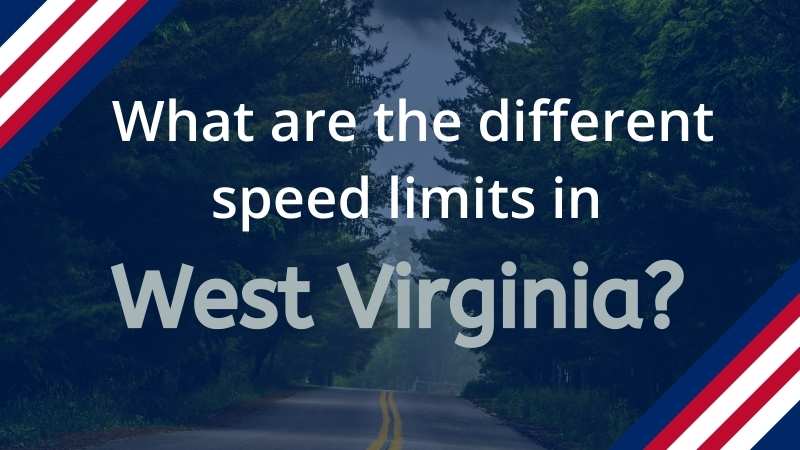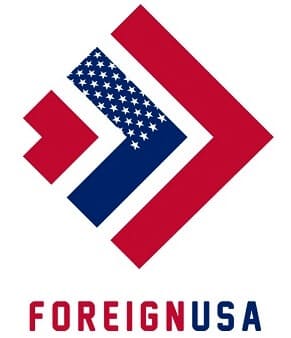Speed limits are certainly not the first thing that springs to mind when you are visiting a state with as much beauty and with as many things to do as West Virginia. However, the state’s traffic authority has set out clear guidelines that must be abided by in order to avoid receiving a traffic ticket, points on your license, subsequent insurance increases, and in some scenarios, jail time!
If you are relocating to West Virginia from another state, visiting from another state or country for vacation purposes, or simply passing through the state from Virginia or perhaps Ohio due to commuting to work or other reasons, possessing the correct knowledge of the speed limit in West Virginia as well as the other traffic laws is incredibly important to have and follow.
Knowing the correct speed limits is not only about avoiding punishment. It is also about driving safely on the roads to prevent accidents with another motorist or passerby. Driving within the speed limit helps reduce the possibility of crashes and promotes efficient use of the road.

Traffic laws, including speed limits and other motor vehicle-related laws, are established by the West Virginia Department of Transportation. The state speed limits are defined by two different types of speed limits, basic speeding West Virginia law, and absolute speed limits.
The basic speeding law prohibits driving “at a speed greater than is reasonable and prudent under the conditions and having regard to the actual hazards then existing”. Simply put, motorists must always drive at a safe speed for the conditions and environment they are driving in.
For example, if you are driving on a 55 mph undivided road on a snowy, and dark evening in West Virginia, it would be a requirement for you to slow down your speed to significantly less than the signed speed limit of 55 mph. This is due to bad weather conditions for driving, making the road dangerous and unsafe, if you are caught driving at the signed limit in these kinds of conditions, expect a fine coming your way.
Absolute and Basic Speed Limits in West Virginia
The absolute speed limit in West Virginia is the speed limit you see signposted on roadways, what you see is what you get. If the weather conditions are good and safe, you may go at the maximum speed limit. Surpassing it will likely cost you fines, and other penalties.
The Mountain State does not have the highest maximum speed limit in the U.S., in fact, there are 16 other states that all have a higher maximum speed limit. The maximum speed limit at which you can travel on certain roads in West Virginia is 70 mph.
Here are the different speed limits to look out for in West Virginia:
- 25 mph is the speed limit in West Virginia’s business and residential districts.
- The school zone speed limit is 15 mph during school recess or while children are going to or leaving school during opening or closing hours. You cannot overtake another car in a school zone or a school bus.
- 55 mph is the maximum speed limit for undivided roads and open country highways.
- 65 mph is the maximum speed limit for divided roads.
- The urban highway speed limit in West Virginia is 65 mph.
- Rural highways in West Virginia are 70 mph.
- What is the highest speed limit in West Virginia? Interstate highways and rural interstates in West Virginia are 70 mph, trucks that drive on an interstate highway must abide by the limit of 70 mph too (West Virginia truck speed limit).
Speeding Fines and Tickets in WV
In West Virginia, the fines for committing speeding violations depend on the circumstances, but in general, speeding is considered to be a misdemeanor. Here are the possible penalties you will likely receive for surpassing specific speed limits:
- The first speeding offense within a year = $100.
- The second speeding violation within a year = $200.
- The third speeding offense within a two-year period = $500, if the third violation involves a speed that is at least 15 mph over the absolute or basic speed limit, the driver will face up to six months in jail too.
- School zone speeding violations will result in a fine between $100 and $500.
- A driver exceeding the speed limit by at least 15 mph will face up to six months in jail and/or $100 – $500.
These penalties will have to be paid if you are caught and proven to be guilty of surpassing the speed limit in West Virginia. When you are caught speeding in West Virginia, you not only run the risk of being fined, but you also run the risk of potential points being added to your driving license, the table below has the offense with the number of points that will be subsequently added to your driving license.
| Maryland Speeding Ticket Points | Total Points |
|---|---|
| Unlisted moving violation | 1 or 3 if it results in an accident |
| Tailgating | 2 |
| Speeding by 10 or more mph over limit but less than 30 mph over the limit | 2 |
| Failure to stop for school bus | 3 |
| Littering | 2 |
| Failure to submit to pedestrian | 2 |
| Traffic control signal violation | 2 |
| Speeding 30 or more miles per hour over limit | 5 |
| Driving without license | 5 |
| Failure to report an accident | 5 |
| A learner driving without supervision | 5 |
| Driving while having a suspended license | 12 |
| Racing | 5 |
| Speeding 20 or more mph over limit of 65 mph | 5 |
| Aggressive driving | 5 |
| Reckless driving | 6 |
| Driving while impaired | 8 |
| Failure to stop at accident | 8 |
| Failure to stop at a fatal accident | 12 |
| Driving with a revoked license | 12 |
| Vehicular homicide | 12 |
| Driving under the influence | 12 |
| Any felony involving use of a vehicle | 12 |
| Fleeing or eluding officer | 12 |
| Unlawful taking or use of vehicle | 12 |
| Texting and driving that results in a fatality or serious injury | 12 |
When visiting or relocating your family to West Virginia, it is normal to have your mind focused on fun things to do. Knowledge of the speed limits in West Virginia – and adhering to them – will ensure your time is well spent and minimize the chance of you being fined.


